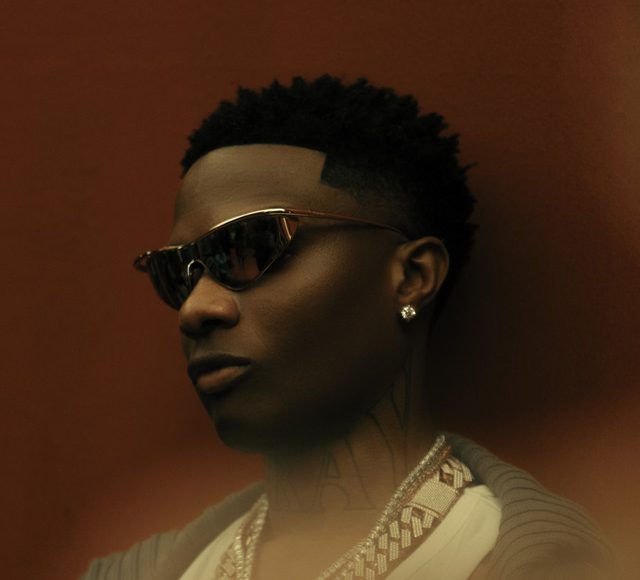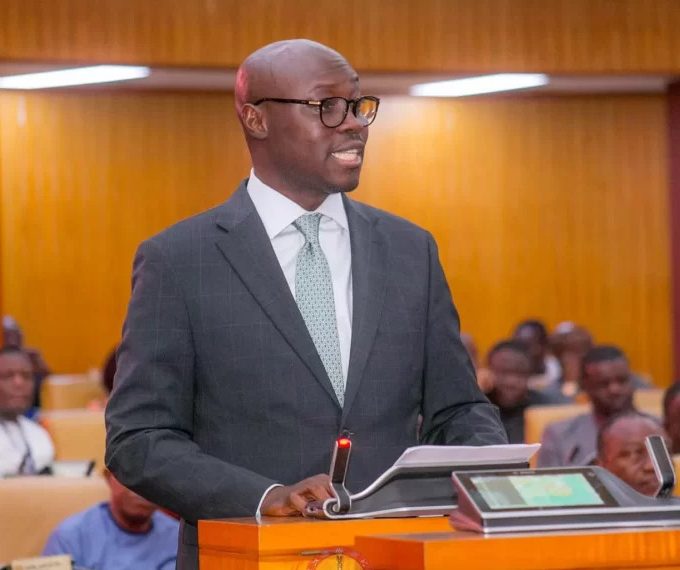
Natural Hues, Deep Roots: Afrikastabel’s Sustainable Threads of Nigeria
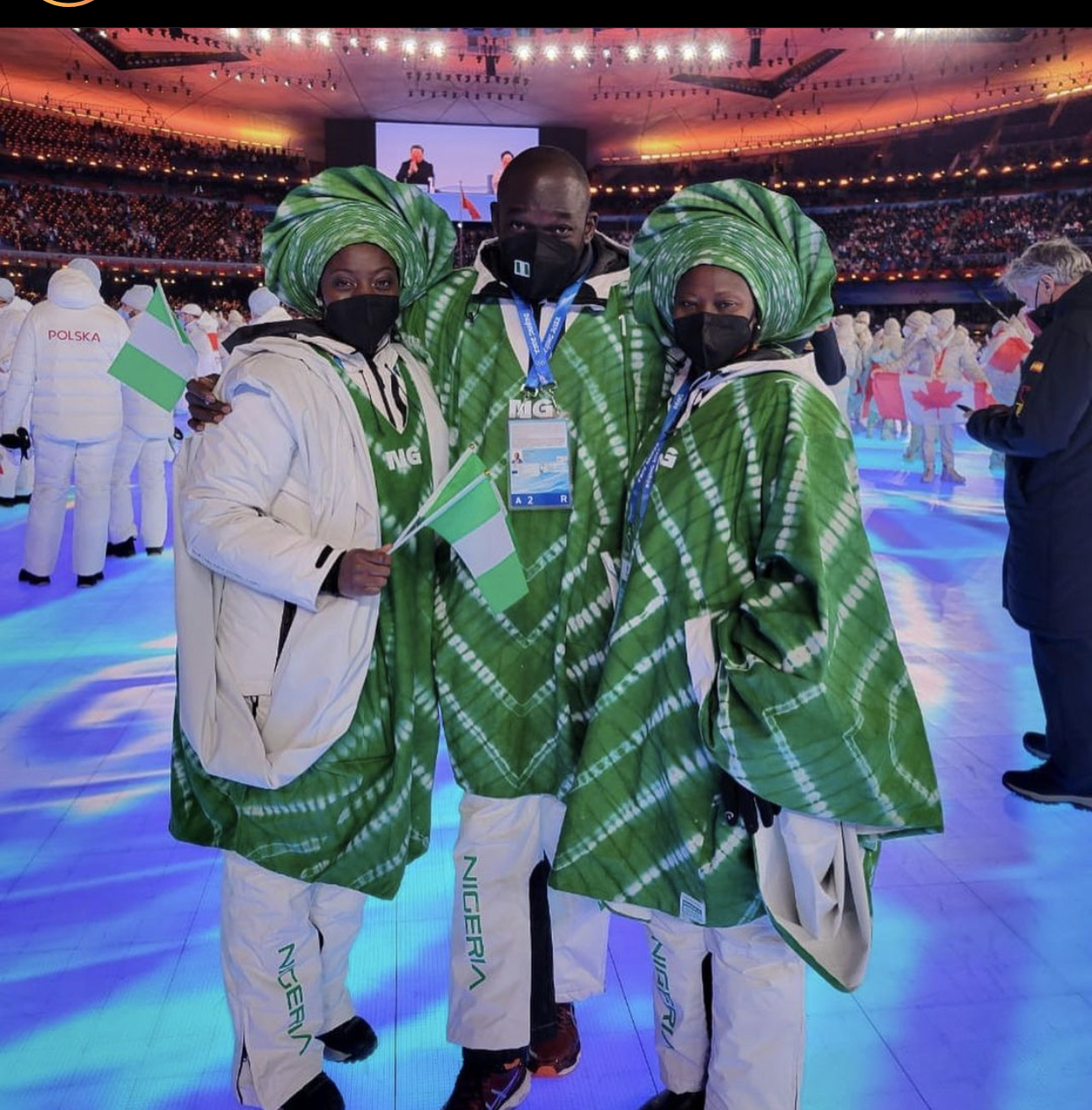
Nigeria’s textiles are more than just colourful clothes. They’re steeped in history, with each design and vibrant hue whispering tales of the past. Today, a new generation of designers is preserving these traditions while introducing sustainable and ethical practices. Leading the charge is Ifebuche Madu, the visionary founder and creative director of Afrikstabel. In this interview, we explore Madu’s journey, Afrikstabel’s innovative approach, and its impact on the environment and local communities.
“Afrikstabel was birthed from the desire to preserve and protect original Nigerian textiles after discovering that the Ankara fabric, which I loved growing up, does not have its origin in Africa. This made me question, “Which is then the true African print?“ I started researching and discovering rich and different Nigerian textiles,” she tells West Africa Weekly. Madu founded this company in 2019.
“Our vision is to invest more in an eco-friendly sustainable practice, find ways technology can help us innovate in sustainable materials, and leverage traditional Nigerian craftsmanship to create unique, ethically produced textiles that resonate with global consumers and contribute positively to environmental and social sustainability efforts,” Not many textile dye fashion brands in Nigeria are making a difference for the culture. Still, Afrikstabel is committed to making that change.
Afrikstabel has been branded as a sustainable brand by many; Madu notes, “We are committed to ensuring that sustainable practices are adopted, and we do this in so many ways. First, we use natural fibres, which are bio-degradable for all our production; we also use natural and eco-friendly dyes. We have a system that enables fashion designers to send in their tailor’s offcut for us to redye them and turn them into new pieces. This solves the issue of waste.”
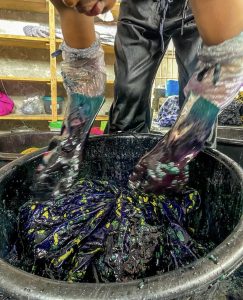
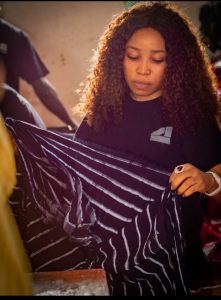
Talking about sustainability in fashion brands and textile dyeing means discussing how clothing companies are trying to make their products and manufacturing processes better for the environment and people. This includes using materials that are easier to break down naturally, like natural fibres and dyes that are less harmful to the environment. Additionally, it involves finding ways to reduce waste, such as repurposing fabric scraps to make new clothing items instead of throwing them away. Overall, it’s about making fashion more eco-friendly and less harmful to the planet.
In addition, Madu highlighted how Afrikstabel’s Minimum Order Quantity (MOQ) benefits both emerging and established brands by addressing the problem of overproduction. She emphasised their commitment to sustainability by mentioning their practice of recycling dye waste to ensure it’s safe for the environment. Despite facing initial challenges in sourcing suitable materials, she expressed confidence in their ability to overcome obstacles. Madu also shared her investment in sponsoring projects like the wastewater treatment plant, underscoring her dedication to promoting sustainable practices within the fashion industry.
Afrikstabel’s upcoming status as the sole company in Nigeria with an innovative dye wastewater treatment plant underscores its commitment to environmental sustainability and responsible manufacturing practices. “I am happy that our Adire wastewater treatment plant is fully functional. This plant ensures that all toxins from the dye are converted to safe water for the people and the environment,” Madu said.
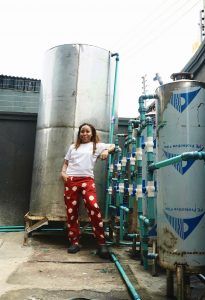
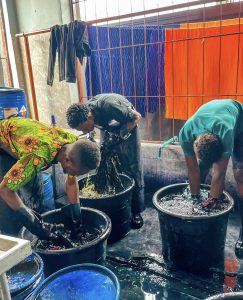
Implementing a wastewater treatment plant for textile dyeing in Nigeria holds significant cultural and environmental benefits. Firstly, it aligns with the cultural ethos of preserving and respecting nature, deeply ingrained in Nigerian culture. By mitigating the environmental impact of textile dyeing, the plant protects natural resources, such as water bodies, which are integral to Nigerian cultural practices and traditions.
Moreover, by adopting sustainable practices in textile manufacturing, Afrikstabel sets a precedent for responsible stewardship of the environment within the Nigerian fashion industry. This aligns with broader cultural values of resourcefulness, community well-being, and respect for future generations.
Establishing a wastewater treatment plant reflects a commitment to sustainable development that not only safeguards the environment but also upholds cultural values and traditions in Nigeria.
When asked about Afrikstabel’s approach to preserving traditional techniques, Madu shared a poignant story from 2018. “I commissioned some female artisans in Ondo state for a job,” she began. “During my visits, I discovered the harsh reality of exploitation faced by these artisans.” Moved by their plight, Madu took action. “I educated her on how to value her business,” she said. “This prompted my decision to partner with artisans across Nigeria, and today, we have partnered with over 150 artisans.”
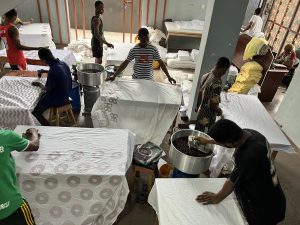
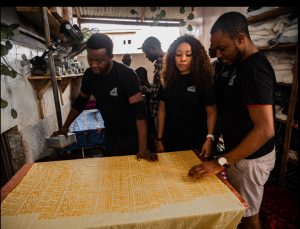
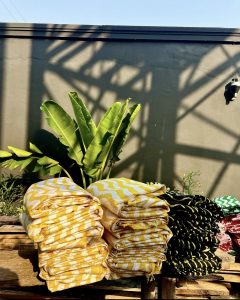
Madu discussed Afrikstabel’s commitment to empowering women and creating jobs. “We consistently organise skill acquisition programs where we educate artisans on self-sufficiency,” she explained. “Over time, we have trained many women and are proud to see their lives transformed.”
Turning the conversation to market expansion, Madu shared exciting plans for Afrikstabel’s future. “Currently, we export to over eight countries,” she revealed. “Plans are underway to design the 2024 Summer Olympic team uniform with a brand in the US, which I am very enthusiastic about.”
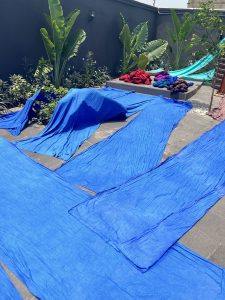
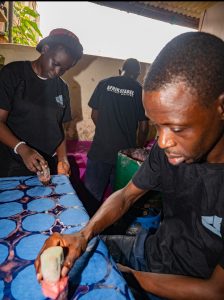
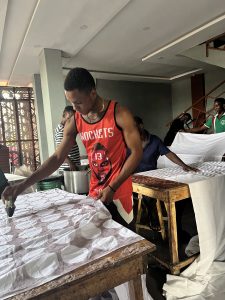
Madu expressed her hopes for Afrikstabel’s continued success and transformative impact on the Nigerian textile industry. “We plan on pushing innovations that will propel our fabrics to existing markets,” she said. “Afrikstabel textiles will become an important part of every brand, especially regarding sustainability.” With a vision for the future, Madu is determined to make Afrikstabel a symbol of Nigerian pride on the global stage.
About The Author
Related Articles
Wizkid and Asake Join Forces on New Collaborative EP
Wizkid and Asake have released a collaborative EP, uniting two of Nigeria’s...
ByWest Africa WeeklyJanuary 29, 2026Wizkid, Seyi Vibez, and Asake Dominate Spotify’s 2025 Wrapped in Nigeria
Spotify has released its 2025 Wrapped data, and the results show another...
ByWest Africa WeeklyDecember 4, 2025Lagos Welcomes XVI Edition of S16 Film Festival Featuring Shorts, Features, and Panels
The 2025 edition of the S16 Film Festival officially opened in Lagos...
ByWest Africa WeeklyDecember 3, 2025Ghana Sets Up GH₵20m Creative Arts Fund as Nigeria’s Sector Still Lacks Support
Ghana’s 2026 national budget includes a bold new investment in its creative...
ByIkenna ChurchillNovember 17, 2025









